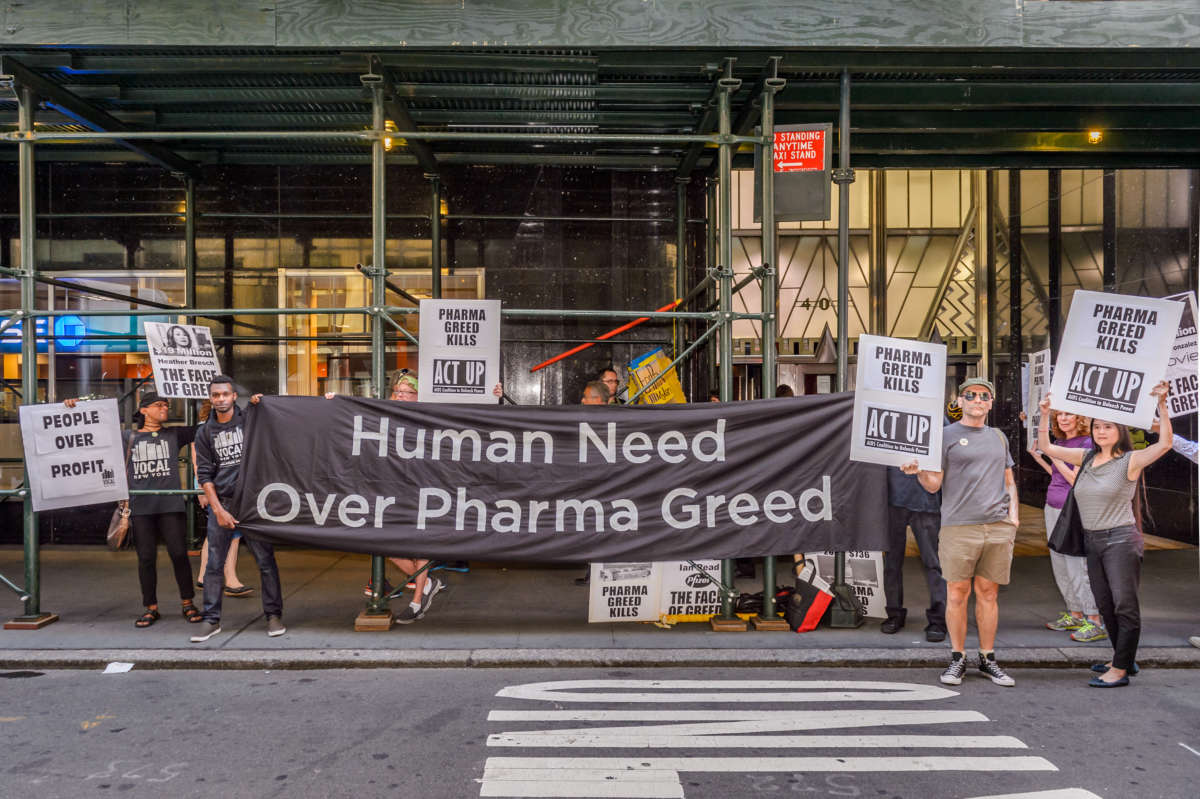As a result of the coronavirus pandemic, hospitalizations skyrocketed in 2020, but routine visits to the doctor’s office and demand for new prescription medications fell sharply during the worldwide lockdown.
To make up for lost revenue, the pharmaceutical industry plans to ring in the New Year by raising prices on more than 300 drugs in the United States on January 1, according to an analysis by healthcare consulting firm 3 Axis Advisors, whose findings were summarized in an exclusive report published Thursday in Reuters.
As Reuters pointed out, “The increases come as pharmaceutical companies like Pfizer are playing hero by developing vaccines for Covid-19 in record time.”
While scientific advances made by pharmaceutical companies have contributed to defeating the pandemic, critics argue that it would be naive to assume the industry is simply motivated to improve people’s well-being.
“Big Pharma’s greed is a danger to public health,” Reps. Pramila Jayapal (D-Wash.) and Mark Pocan (D-Wis.) said earlier this year, when Gilead announced that it would charge U.S. hospitals $3,120 per privately insured patient for a treatment course of remdesivir, a Covid-19 drug whose development was financed in large part by taxpayers.
Pfizer spokesperson Amy Rose pointed to the coronavirus vaccine the company developed with Germany’s BioNTech in an attempt to justify next year’s drug price hikes. “This modest increase,” Rose said in a statement, “is necessary to support investments that allow us to continue to discover new medicines and deliver those breakthroughs to the patients who need them.”
Nevertheless, as David Mitchell, a cancer patient and founder of Patients for Affordable Drugs Now, said last month, “Drugs don’t work if people can’t afford them.”
To “get innovation we need at prices we can afford,” Mitchell added, “restore balance… [and] end unlimited drug corporation pricing power.”
Drug manufacturers, including Pfizer, Sanofi USA, and GlaxoSmithKline, “are also fighting new drug price cutting rules from the Trump administration, which would reduce the industry’s profitability,” Reuters reported.
President Donald Trump pledged in 2016 to reduce prescription drug prices in the U.S., which are among the highest in the world, but it wasn’t until late 2020 that he issued a handful of executive orders meant to slash prices. According to Reuters, “Their impact could be limited by legal challenges and other problems.”
The news outlet continued:
A federal judge earlier this month blocked a last-minute Trump administration rule aimed at lowering drug prices that was set to be implemented at the beginning of the year. It was challenged by drug industry groups including PhRMA, the nation’s leading pharmaceutical trade group.
President-elect [Joe] Biden has also vowed to reduce drug costs and to allow Medicare, a U.S. government health insurance program, to negotiate drug prices. He has support from congressional Democrats to pass such legislation, which the Congressional Budget Office has said could cost the industry more than $300 billion by 2029.
As Common Dreams reported last month, researchers have linked the failure to address the unaffordable costs of prescription medications to a rise in “cost-related nonadherence” to drug therapy, which increases preventable suffering, premature deaths, and healthcare spending.
Join us in defending the truth before it’s too late
The future of independent journalism is uncertain, and the consequences of losing it are too grave to ignore. To ensure Truthout remains safe, strong, and free, we need to raise $46,000 in the next 7 days. Every dollar raised goes directly toward the costs of producing news you can trust.
Please give what you can — because by supporting us with a tax-deductible donation, you’re not just preserving a source of news, you’re helping to safeguard what’s left of our democracy.
